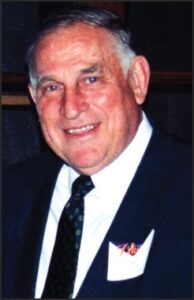by James A. Bacon
Aiming to address the lamentable decline in state/local news coverage, States Newsroom supports local news operations in 29 states, including Virginia.
As Jim Sherlock detailed here, the nonprofit organization was launched in 2017 by the left-of-center Hopewell Fund, which itself is managed by the left-of-center Arabella Advisors.
Its Virginia Mercury digital publication has made a valuable contribution to Virginia journalism by breaking many important stories. While the Mercury can credibly profess to be politically “nonpartisan,” its news coverage leans hard to the port side on environmental and social-justice issues.
In a nod to transparency, States Newsroom publishes the names of all individuals and groups that have contributed $500 or more since November 2019. One of the names listed is the “University of Virginia Alumni Association.”
Conservative UVa alumni might ask themselves the question: why is their alumni association contributing funds to a left-of-center news organization?
I posed that question to Richard Gard, vice president of communications for the association. It turns out that the alumni association did not make the contribution. Rather, it acted as a pass-through for another UVa-affiliated entity.
And therein lies a story illustrating the opaque organizational structure of the University of Virginia and its Oort Cloud of satellite foundations and affiliated groups.
I contacted Gard to ask the size of the donation and who made the decision to give it.
“The donation you saw … was made by one of our UVA Fund clients, which are UVA organizations (including student and alumni groups) that contract with us for financial management services, including issuing payments,” Gard explained.
“Our name showed up on the … donor list probably because the funds were issued on our check stock, but these were agency funds, not Alumni Association funds, and so wouldn’t have required approval by anyone at the association,” he said.
I then asked which of the UVA Fund clients made the donation.
Said Gard: “It would be inappropriate for us to share that with you.”
Thus, my inquiry into which UVa entity donated to State Newsroom and/or The Virginia Mercury hit a dead end.
However, the information that the UVa Alumni Association and its UVA Fund provides management services to other UVA-related entities came as a revelation to me. In theory, the alumni association is an independent entity answerable to its alumni members. In practice, as my colleague Walter Smith has outlined elsewhere, the alumni association is joined at the hip with the university administration.
Smith described how the UVa administration influences nominally independent entities, referred to as University-Associated Organizations (UAOs). All UAOs, of which there are 23, must sign a Memorandum of Understanding (MOU) detailing “common expectations and responsibilities” for the University and the UAO. Also, the UVa Board of Visitors appoints a representative to each UAO board and so does the UVa president.
That much we knew. But the integration of the alumni association with the university administration, it appears, runs even deeper. According to the alumni association website, an entity called the UVA Fund offers financial and endowment management services to other players in the university community. The purpose, says the UVA Fund web page, is to “reduce the administrative burden on clients, so they may focus on their mission and role at the University of Virginia.”
“Whether you are a volunteer student group or a department on Grounds, we have a solution for your accounting and financial management needs,” states the Fund’s “About” page.
The Fund has more than 3,700 accounts but does not list the names of any of them.
There was a time when the University of Virginia Alumni Association under Gilly Sullivan was known for its prickly independence. Over a half-century career Sullivan was one of UVa’s greatest champions — he oversaw the launch of the Jefferson Scholars Program and the Virginia Athletics Foundation — but he didn’t take orders from anyone.
The alumni association was truly independent. Since he retired in 1993, the association has come to function as an adjunct to the university’s development office and an extension of the university’s PR armature, tightly controlling the message to alumni. Through the UVA Fund the association provides critical support tying those 23 quasi-independent foundations and unspecified departmental, academic and administrative entities into a functioning whole.
Government and corporations in America have evolved highly developed systems of governance over the years. Government leaders are accountable to the electorate, and business leaders to stockholders. Both live by strict rules for transparency. Universities, by contrast, have opaque organizational structures with divers and distributed centers of power. While public universities such as UVa are governed by boards appointed by the governor, the satellite organizations that collectively hold $14 billion in endowment funds are run by self-perpetuating cliques accountable to no one.
This governance system has gone unchallenged for decades. The Jefferson Council will continue its efforts to peel back the layers of the onion to understand how it works at UVa.
Full disclosure: The author is vice president-communications for the Jefferson Council alumni group.



